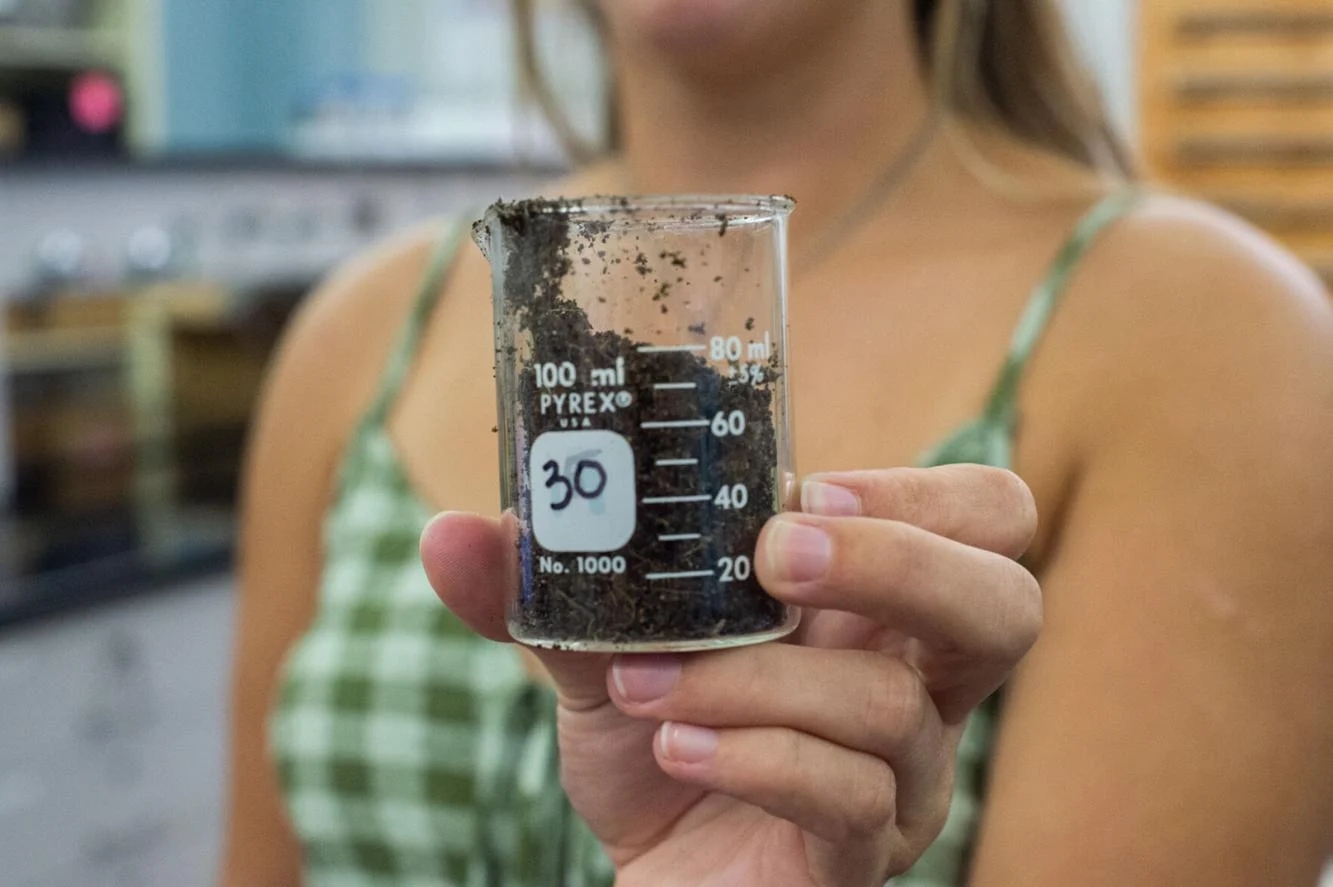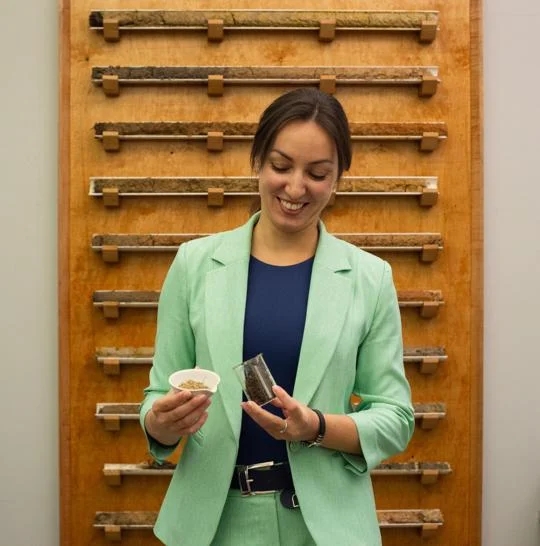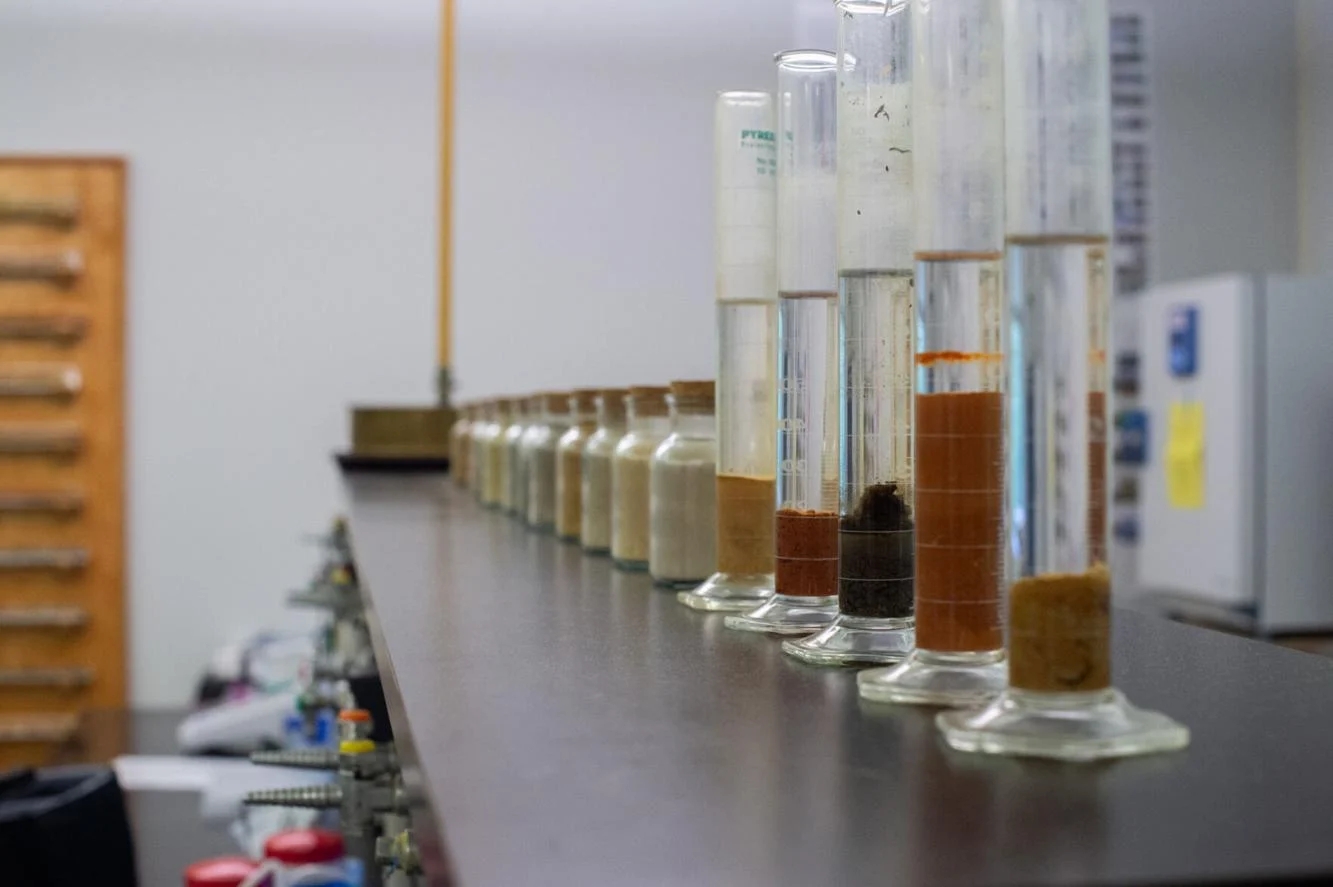Our School of Computing and Informatics just launched a novel Ph.D.
Got lead? Our Delta Urban Soils Lab will test your soil
Fri, 10/13/2023 - 7:40pm
(Graduate student Holly Heafner holds up a soil sample at the Delta Urban Soils Lab Tuesday, October 3, 2023, at UL Lafayette in Lafayette, La. Advocate staff photo by Alena Maschke.)
Dr. Anna Paltseva of our School of Geosciences founded the Delta Urban Soils Lab. The lab offers testing for various types of contaminants, including lead and arsenic. Over the past year, the lab has collected and analyzed hundreds of samples from homes and public spaces in Lafayette free of charge, and is planning to collect hundreds more.

(Professor Anna Paltseva holding up soil samples at the Delta Urban Soils Lab Tuesday, October 3, 2023, at UL Lafayette in Lafayette, La. Advocate staff photo by Alena Maschke.)
Lead-contaminated soil can have adverse health outcomes, especially for children. Now in its second year, a project of the Delta Urban Soils Lab offering free soil testing to Lafayette residents is calling on homeowners to submit samples from their yards for testing. “This helps residents make decisions about their yards, their community, which then protect the children of that community,” said Chris Adams, a planner with Lafayette Consolidated Government, who has helped the lab connect with residents to inform them about the program. “It’s a really important piece of community health.”

(Soil samples are lined up on a workbench at the Delta Urban Soils Lab Tuesday, October 3, 2023, at UL Lafayette in Lafayette, La. Advocate staff photo by Alena Maschke.)
The good news is that there are many ways to reduce or eliminate exposure, depending on the way the soil is used and the level of contamination. Home gardeners can still grow certain vegetables, like eggplants or tomatoes, even if their soil tests positive for moderate levels of lead, but might steer clear of leafy greens and root vegetables. A yard where lead contamination is detected can still be safe for children to play in — but the contaminated soil should be covered with compost or mulch, to create a protective barrier. “There’s always solutions,” Paltseva said, "but it’s important to know the threat in order to combat it."
Funded through a $107,000 grant from the Louisiana Board of Regents, the project has collected roughly 600 samples so far,usually collecting soil from different areas of the property. Over the two-year grant period, which ends in June, the group is planning to collect 1,000 samples total. Some of the samples collected so far have come from public land, while others have been submitted by residents. Members of the field team, made up of graduate and undergraduate students, regularly venture out armed with garden shovels and ziplock bags to collect soil.
At this point in the project, Paltseva and her team are hoping to receive more samples from the south side of town, despite their projections that contamination levels are likely to be lower there. In addition to helping residents make informed decisions, the goal is to create a complete picture of the levels of lead contamination across the city, something that hasn’t been done before in Lafayette. “Very often, small communities stay undiscovered, because scientists focus on bigger cities,” Paltseva said, noting that many scientists have focused their entire careers on studying these issues in Baton Rouge or New Orleans. “I wanted to extend this knowledge.”
Residents interested in having their soil tested can find more information, including a mailing address for samples, on the Delta Urban Soil Labs website. Those outside of Lafayette who want to know more about the composition of their soil can use the lab’s services for a fee.
The text of this news item borrows from the writing of Alena Maschke in her Acadiana Advocate article and her The Current article. The television story about this Delta Urban Soil's Lab project is online at this KATC webpage.

